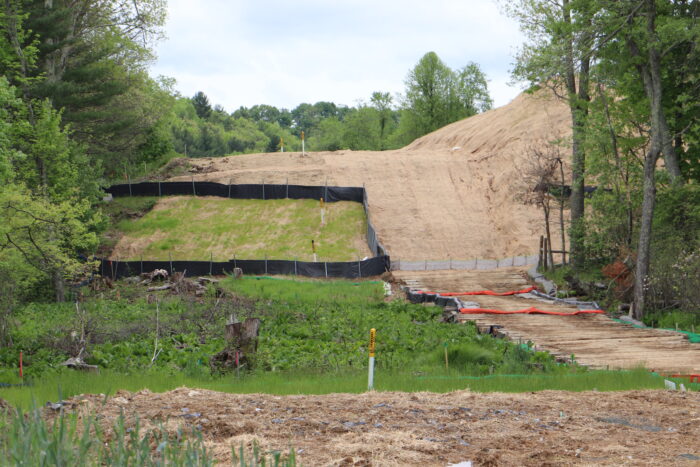The Mountain Valley Pipeline may be finished, but the debate continues on what could power the southeast for decades to come.
One of the pipeline’s biggest potential customers is Duke Energy, which plans to build five natural gas power plants in North and South Carolina over the next 10 years, replacing coal plants that are growing old.
That requires an additional pipeline called MVP Southgate, which would run from the Mountain Valley Pipeline terminus in southern Virginia into North Carolina.
“New natural gas electric generation is required in the Carolinas to keep the companies on track to achieve carbon neutrality by 2050,” wrote Nelson Peeler, Duke Energy Carolinas senior vice president for transmission and fuel supply and policy, in a July 2022 letter to the Federal Energy Regulatory Commission. “Specifically, new natural gas generation is consistent with least cost and reliability objectives to support retirement of aging coal facilities.”
Virginia and North Carolina have not granted the necessary permits. Federal regulators allowed the pipeline’s builder an extra three years to complete it.
The groups and landowners who opposed the Mountain Valley Pipeline have said they’ll shift their focus to MVP Southgate.
“Appalachian Voices will continue to support the communities along the route in any way that we can including monitoring, advocating for emergency management funding and holding the company and agencies accountable,” said Jessica Sims, Virginia field coordinator for Appalachian Voices.
Duke’s gas plants may have difficulty complying with new federal rules on power plant emissions, should those survive legal challenges.
Notably, the West Virginia Coal Association opposed the Mountain Valley Pipeline because of its potential to displace coal at Duke Energy plants.
In a statement last week marking the completion of the pipeline, builder Equitrans Midstream noted the reduction in carbon emissions.
“When used as a replacement fuel for coal-fired electricity generation, natural gas provides reliable power while also reducing carbon emissions by nearly half, helping to meet national and state economic and environmental goals,” the company said.
Duke’s commitment to gas, however, remains controversial because of the potential of the gas plants to operate for decades and the release of methane in the production and transportation of gas. Methane is a far more potent heat-trapping gas than carbon dioxide.
Environmental groups and many Democrats have said Duke should rely less on gas and more on solar, wind and battery storage.
Congressional legislation that fast-tracked the completion of the Mountain Valley Pipeline last year also does not do the same thing for the MVP Southgate project.
And one of the pipeline’s biggest supporters, West Virginia Sen. Joe Manchin, is leaving the Senate at the end of the year.

























